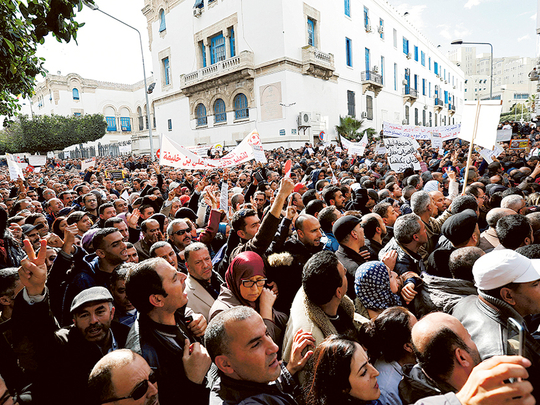
Cairo: The Tunisian government wants to target corruption and raise tax revenue next year in an effort to bring the economy toward its potential of 5 per cent annual growth, Prime Minister Youssef Al Shahed said in an interview.
Achieving that goal would also require measures including streamlining public sector companies and combating the informal economy, Al Shahed said late Tuesday at the Palais de Congres in Tunis, where Gulf and European countries convened to pledge billions of dollars of investment to the birthplace of the Arab Spring. He didn’t offer further details.
“The most important thing is to proceed and put the train on the track and the reforms will take their time,” Al Shahed said. “We believe that the economy is reviving and we see glimpses of growth returning as phosphate production resumes and tourism starts to pick up. Also, the procedures taken by the government will help growth return.”
The North African country revised down it growth forecast to 1.5 per cent this year and is targeting 2.5 per cent expansion in 2017.
Testing democracy
The new plans would build on recent steps to cut costs, draw investors and promote private-sector growth in the one Arab country that embraced democracy and eluded the instability that engulfed other Middle East nations that deposed dictators. But economic hardship has tested Tunisia’s young democracy, with terrorist attacks battering its vital tourism industry and officials still struggling with the high unemployment and other economic problems that helped to fuel the 2010 uprising.
The planned wage freeze for public-sector workers that is a mainstay of the current reform program is facing resistance. The country’s biggest union has called for a general public sector strike next week if the government doesn’t reverse course on wages.
Tunisia has already secured a $2.88 billion (Dh10.56 billion) International Monetary Fund loan, and hopes the ongoing investment conference “will bring it back to the international investment map,” El-Shahed said. The government plans to get about 6 billion Tunisian dinars ($2.6 billion) through foreign loans next year to bridge the financing gap in addition to local debt, he said.












